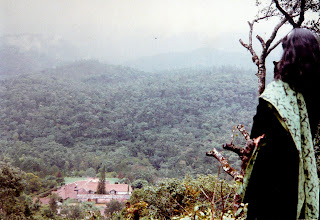Epitaph for our men in uniform -Mumbai, November 2008-

I drop two tears in memory of the brave soldiers and the policemen who laid down their lives fighting valiantly during the eventful Mumbai days of November 2008 igniting the waves of patriotism, unity and of the supreme sacrifice. May their breed prosper and live long till the earth lasts!
Let’s also salute all the soldiers who took part in “Operation Cyclone” and saved many lives and brought back cheers to our kids!
Rudyard Kipling, the much controversial poet had brilliantly written the following epitaph for a dead soldier,
“If any question why we died,
Tell them because our fathers lied”
These bitter word written after WW I, were written in agony because, the poet thought that if they had lived, they would have corrected the errors of the generation that preceded them.
I think that it wont be improper if we replaced the word “’fathers”’ with “politicians” to make the statement more explicit. Had Hemant Karkare, Vijay Salaskar, Ashok Kamte, Sandeep Unnikrishnan or any of the others lived, they would have tried to rectify the mistakes of our politicians!
Once again, let me salute the soldiers by remembering the following quote:
"It is the soldier, not the reporter, who has given us freedom of the press.
It is the soldier, not the poet, who has given us freedom of speech.
It is the soldier, not the organizer, who has given us the freedom to demonstrate.
It is the soldier, who salutes the flag, who serves beneath the flag, And whose coffin is draped by the flag, who allows the protestor to burn the flag”- Father Dennis Edward O'Brian
Dubai, 2nd December 2008.



Comments
Did they give up their lives for defending the nation or a bunch of obscene politicians? The Kerala Chief Minister's behaviour while visiting Sandeep's house in Bangalore was detestable. If the dead soldier's father did not want any politician to visit his house the right thing for him and the Home Minister to do was to go up to the main gate and lay a wreath there, say a silent Communist prayer and scoot. Instead what the boorish crowd did was to gate crash into the house with a posse of policemen,lock the distraught father out of his own house and insisting on paying their 'respects' to the dead soldier! Typical 'attimari' behaviour. The national media was there to record the incident. Even Lalu Prasad was shocked!
praharikkanam avaneyokke - he should have shown at least the wisdom gained by his age..
I am quoting below from memory the inscription on a war memorial in Kohima (?):
When you go home,
Tell them of us who will never return
And say
For your tomorrows
We gave our today.
I used this with some modifications for an ad by National Tyre & Rubber Co. of India Ltd. (no longer in existence) on the 1st anniversary of the Chinese aggression. It was editorially commented upon by DF Karaka in the Current.
The ad agency involved was Efficient Publicities, Madras.
It is the Soldier
It is the soldier, not the minister, who has given us freedom of religion,
It is the soldier, not the reporter, who has given us freedom of the press,
It is the soldier, not the poet, who has given us freedom of speech,
It is the soldier, not the student activist, who has given us the freedom to demonstrate,
It is the soldier, not the lawyer, who has given us the right to a fair trial,
It is the soldier, not the politician, who has given us the right to vote,
It is the soldier who salutes the flag, whose coffin is draped by the flag, who permits the protester to burn the flag.
Charles Michael Province
US Army
Thank you for your comments and the corrections. I read the poem again from the link sent by you and quite agree that this is a much refined version, most touchingly expressed. Also,given his background,Charles M Province could be the more likely author.
Kindest regards,
Your pieces display a proportinate blend of history and current affairs.Ever considered writing something on your experiences as a member of the royal family on the practices of the time?
Indu
Being a part of a family or a community, one gets to witness the more finer aspects of such kind of contributions and the practices and rituals carried out on a daily basis.An insight into this is rare nowadays but would be impressive.
I have had couple of friends in the family and have during the course of my work , had the privilege to talk to members of the Cochin and Travancore royal families and i must admit that i have been quite impressed by even the way they speak the language and the terminologies common only to the family.
To this, if you can add your thoughts and memories, i think it would be significant.
I shall definitely give some thoughts to your line of thinking and advice.
Kind regards,